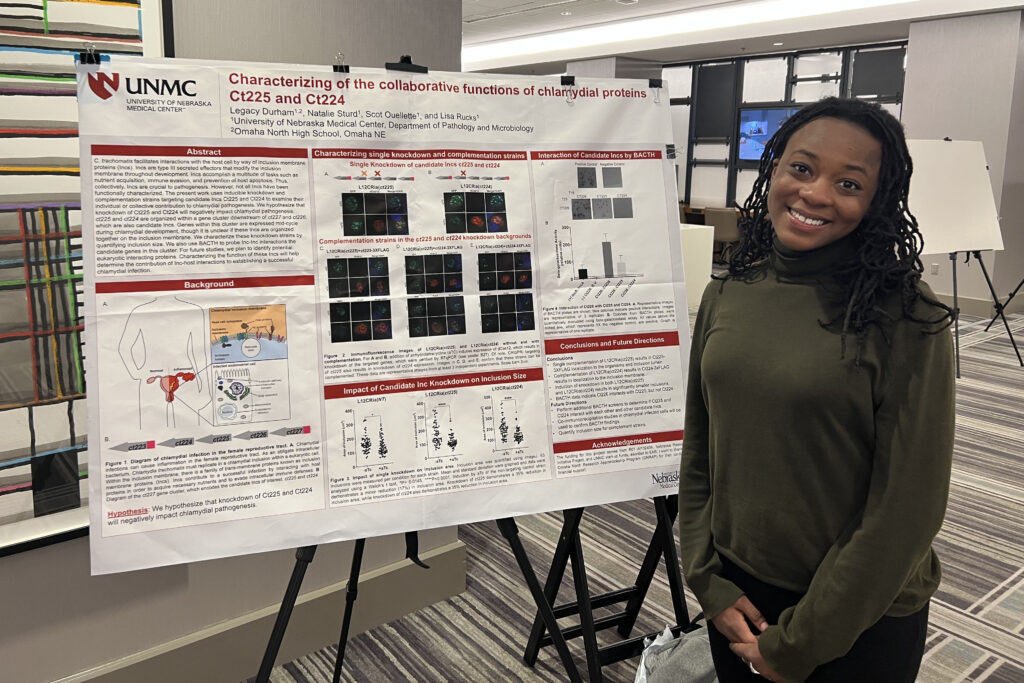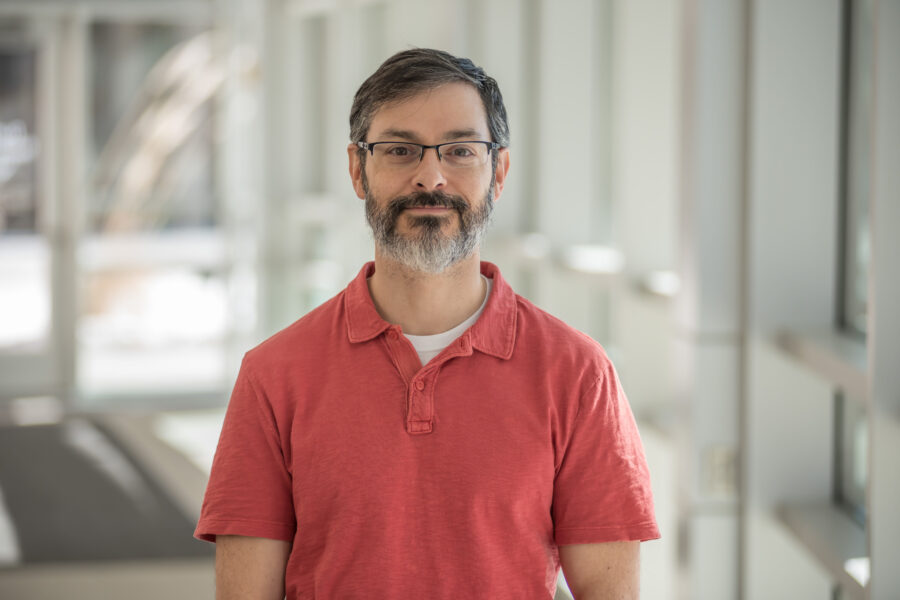Scientists are a national resource.
“Broadly speaking, we need more scientists, and more people interested in STEM,” said Scot Ouellette, PhD, associate professor and research scientist in the UNMC Department of Pathology and Microbiology.
Dr. Ouellette, broadly speaking, is helping to create them.
When Dr. Ouellette joined UNMC in 2017, he created an outreach program designed to give students at all education levels, but primarily high school students, a chance to explore science and the careers it offers.
Today, the UNMC Research Apprenticeship Program in Pathology and Microbiology works with Omaha North High School to bring in from four to six students per year for the internship, which runs generally from January through May.
“Most kids coming through school, and it’s true for a lot of the students who come to my lab, their only exposure to science-based careers, if they’re interested in biology, at least, is physician, dentist, and sometimes vet. From my perspective as a researcher, I’d like to see more people interested in research.”
One current student in the program, Legacy Durham, recently presented her research project at an international conference that took place in Omaha in March.
“Legacy is a great example to these students to show how far they can go,” Dr. Ouelette said. “She was the only high school student who presented her research at this conference — quite an achievement!”
Dr. Ouellette’s collaboration with Omaha North also allows him to reach out to students who may be from underrepresented groups.
“Science works best when we have diverse perspectives, and people approaching problems from different sides and different angles. If everybody looks like me trying to solve the problem, that’s not going to get very far,” he said. “It’s really critical that we have students from different backgrounds and — again, in terms of the exposure — students who might not normally have the opportunity to have that exposure, come into the lab so that they can see what it’s about. And it may not be that they have the best grades. That’s not always important, grades aren’t always the best metric of success. And for some of these students from maybe more disadvantaged backgrounds, they probably have a lot of other stressors in their life that maybe impact their scholarly activities, but that doesn’t mean you’re not capable of succeeding.”

The program isn’t open only to Omaha North students. Colleagues from around UNMC have reached out to Dr. Ouellette to suggest students for the internship, and he continues to develop relationships on campus that broaden access for underrepresented students.
Also, he pays his interns and helps provide transportation when necessary.
“In terms of trying to reach out to underrepresented or disadvantaged communities, transportation can be a problem,” he said. “Not every high school kid has a car.”
Dr. Ouellette doesn’t track students to see if they’ve gone on to study science in college.
“It’s a little too early,” he said. “I had one student I brought in who went to UNL, and he’s currently a junior in a science track program. But it’s a bit hard to track the other students once they go on.”
Dr. Ouellette thanked his colleagues in pathology and microbiology, several of whom help mentor the interns.
“It’s primarily our department so far, and at some point, it would be nice to be able to expand if I have enough students who are interested,” he said, adding that one student, who was interested in water quality, interned at the UNMC College of Public Health.
“I am proud of Scott and other faculty members in our department who go out of their way to bring science to tomorrow’s researchers by opening doors, answering questions, and being a role model,” said Joseph Khoury, MD, chair of the department. “Engaging young learners to explore careers in science takes passion and a special (cool) talent like Dr. Ouellette’s.” The program has been funded by a National Science Foundation grant.
